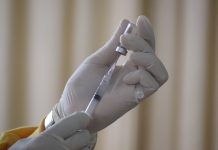Drinking two or more cups of coffee a day not only lowers your risk of disease but also helps you live longer.
Professor Peter Kistler and colleagues of the Baker Heart Institute in Melbourne analysed data from the UK BioBank, a database with health information from over half a million people followed for at least 10 years.
The researchers looked at coffee consumption ranging from one to more than six cups a day and its relationship with heart rhythm problems (heart arrhythmia) and other cardiovascular diseases, including coronary artery disease, heart failure, stroke and deaths.
Researchers found there were significant reductions in cardiovascular risk after controlling for other diseases.
These trends held true for people with and without pre-existing heart disease.
“Because coffee can quicken heart rate, some people worry that drinking it could trigger or worsen certain heart issues,” said Professor Kistler.
“Our data suggest that daily coffee intake shouldn’t be discouraged, but rather included as a part of a healthy diet for people with and without heart disease.
“We found coffee drinking had either a neutral effect – it did no harm – or was associated with benefits to heart health.”
In one study coffee drinking was associated with a 10–15 per cent lower risk of developing coronary heart disease, heart failure, heart arrhythmia, or dying from any cause.
The best health benefit was obtained by drinking two to three cups of coffee a day; those who drank more than three cups or less than two received smaller benefits.
Although two to three cups of coffee a day seemed to be optimal, Professor Kistler said that people shouldn’t increase their coffee intake, particularly if it makes them feel anxious or uncomfortable.
A later study compared the health outcomes of people who drank instant coffee, ground coffee or decaffeinated or decaf. All types of coffee resulted in fewer deaths.
Professor Kistler said there were no difference from choosing decaf over caffeinated coffees.
The study results were presented at the American College of Cardiology’s 71st Annual Scientific Session, in April.
Research study published in the Annals of Internal Medicine in May this year researchers compared the effect of drinking sugar-sweetened, artificially sweetened and unsweetened coffee on mortality.
During a seven-year follow up period, 170,000 UK participants who drank up to three and a half daily cups of sugar-sweetened coffee were 30 per cent less likely to die than participants who did not drink coffee. Results were inconclusive for participants who used artificial sweeteners in their coffee.
In a further study researchers found that consuming at least one cup of coffee a day may reduce the risk of acute kidney injury, compared to those who do not drink coffee.
“We already know that drinking coffee on a regular basis has been associated with the prevention of chronic and degenerative diseases including type 2 diabetes, cardiovascular disease and liver disease,” said Professor Chirag Parikh, of the Johns Hopkins University School of Medicine. “We can now add a possible reduction in kidney disease risk to the growing list of health benefits.”
This study was published in the journal Kidney International Reports in May 2022.
Professor Kistler speculated on how coffee could benefit the heart.
“People often equate coffee with caffeine, but coffee beans actually have over 100 biologically active compounds. These substances can help reduce oxidative stress and inflammation, improve insulin sensitivity, boost metabolism, inhibit the gut’s absorption of fat and block receptors involved with abnormal heart rhythms.
“There is a whole range of mechanisms through which coffee may reduce mortality and have these favourable effects on cardiovascular disease,” he said.
“Coffee drinkers can continue to enjoy coffee even if they have heart disease. Coffee wakes you up, makes you mentally sharper and it’s a very important component of many people’s daily lives,” he said.



































